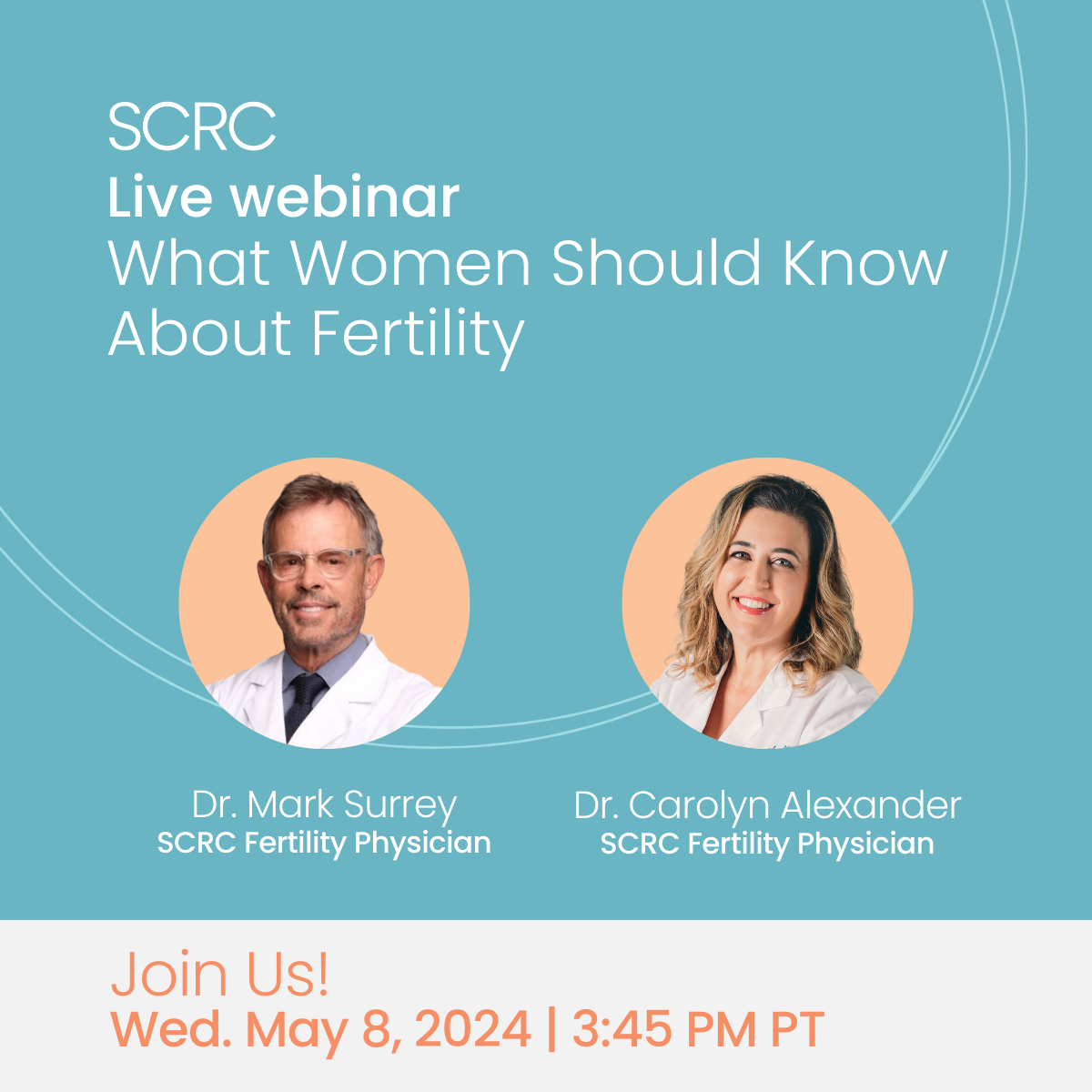Frequently Asked Questions
QFertility Decline
When does a woman’s fertility start to decline? Fertility specialist Dr. Mark Surrey, co-founder of Southern California Reproductive Center, explains when a woman’s fertility is at its peak, and when it starts to begin to rapidly decline.
QWomen in their 40s wanting children
Many women in their early forties want to have children. Fertility specialist Dr. Hal Danzer, co-founder of Southern California Reproductive Center, talks about the problems faced by women who want to conceive in their 40’s.
QAre women between 35-40 still fertile?
Fertility concerns of women ages 35-40 debunked – a woman is born with all the eggs she’ll have in her lifetime. As women age, the chances of conceiving start to drop off significantly starting in their 30s.
It’s a statistic that concerns many women 35 and older. But Jean Twenge, author of the article “How Long Can You Wait to Have a Baby?” in The Atlantic says women in this age group don’t need to panic. “That period between 35 and 40 is more fertile than many people believe,” she said. Twenge, who had her third child at 40, says much of the research women fear the most is based on old data.
Understand Your Fertility Options
Learn more about your first visit, fertility treatment options, financing and more


